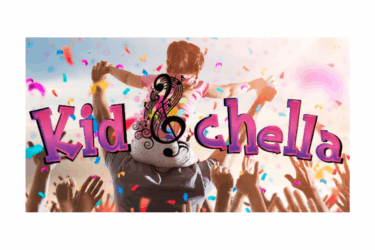Rewind three years … my oldest was just shy of his second birthday. He had severe acid reflux and multiple ear infections since birth. He received tubes just before his second birthday, but something still seemed off. At the time, I worked as a special education teacher, so I knew which checklists to follow, that free early intervention services were available if he qualified, and who to contact for support. I followed all of his developmental milestones, answered all of the developmental questions at his well-child visits, (he was meeting them), but my gut told me his language articulation was not where it should be.
Pediatricians only get to see a brief “snapshot” of children at each visit and although mine did not express any concerns about my son’s articulation, I was still concerned. He would easily become frustrated if I didn’t understand what he was trying to tell me, would often point to things versus talking, very few people could understand what he was saying, and most of his words missed the ending sounds. So I contacted our pediatrician to inform him I was requesting an evaluation, and then called the local early intervention provider Ohio Help Me Grow, a division of the Ohio Department of Health dedicated to providing parents of children through age 3 the support and education necessary to help them enjoy long-term success.
It was helpful having an unbiased set of eyes evaluate him. They picked up on speech patterns that I had not noticed, but I was right: he qualified for speech and language services. We met and created an Individual Family Support Plan (IFSP) and then my son immediately began receiving intervention support. We were taught and provided fun activities to work on at home to help build his articulation skills. It helped me become a better parent and educator, and when my son was about to turn 3, Help Me Grow assisted in coordinating an evaluation with our local school district.
Fast forward to present … my son will be 5 this month and just had a reevaluation to determine if he’s eligible to continue with speech and language services. He’s meeting all of the articulation milestones for his age. Without early intervention he would not be where he is at today. He would not have the deep understanding of letters, their sounds, and how to make blends (all great for early literacy skills too!) and he would probably still be calling cookies “tooties.” Unfamiliar listeners can understand him now, but even more importantly his self-confidence has skyrocketed.
Now my second child is 2, and is showing many of the same behaviors my first did as well as biting occasionally. I notice that I spend a lot of time translating what she’s saying to unfamiliar listeners. After seeing the growth my son made with early intervention I know it’s important for an unbiased set of eyes to take a look at my daughter. I completed the screener with a Help Me Grow Service coordinator (which includes questions about hearing, vision, meal times, bedtime, routines, times of the day that go well and times of the day that are challenging) and she will be evaluated soon.
Local parent and Help Me Grow client Lauren G. says, “Having free or affordable access to early intervention services is priceless when it comes to helping your child succeed. Without these services I have no doubt that our child would not be as successful as he is today. Early intervention is so important in helping a child stay on track and achieve their maximum potential.” There are decades of research that support the services offered by groups like Help Me Grow, or Kentucky’s First Steps in Kentucky.
The U.S. Department of Education reports that there are three primary reasons for early intervention: 1) to enhance the child’s development, 2) to provide support and assistance to the family, and 3) to maximize the child’s and family’s benefit to society. Research in childhood development has found “that the rate of human learning and development is most rapid in the preschool years. Timing of intervention becomes particularly important when a child runs the risk of missing an opportunity to learn during a state of maximum readiness.” (Source: U.S. Department of Education)
Developmental milestones to be aware of:
- Gross motor: using large groups of muscles to sit, stand, walk, run, keep balance, and change positions
- Fine motor: using hands to be able to eat, draw, dress, play, and write
- Language: speaking, using body language and gestures, communicating, and understanding what others say
- Cognitive: thinking skills including learning, understanding, problem-solving, reasoning and remembering
- Social and emotional: interacting with others, having relationships with family, friends and teachers, cooperating, management of emotions, and responding to the feelings of others
Your child’s pediatrician will ask you developmental questions in these areas at well-child visits. If you feel that your child is not developing the same way kids the same age do — not interacting with adults/peers, not walking, babbling, using words, unable to hear certain sounds, holds objects too close to their face — speak up. If you’re a first-time mom, tap into your resources! Ask friends who have kids, go to a park and watch same-aged peers, ask your daycare provider, talk to your pediatrician and look at milestone checklists.
The Centers for Disease Control provides checklists you can use to track your child’s development. Access these checklists at cdc.gov/ncbddd/actearly/index.html. For information on age-appropriate speech and language skills, check the American Speech-Language-Hearing Association at asha.org.
Just remember … although there are general guidelines, ALL kids develop at different rates. Don’t panic if your child isn’t walking as soon as your neighbor’s son did. But do trust your instincts, and if something doesn’t seem right, contact your pediatrician.





